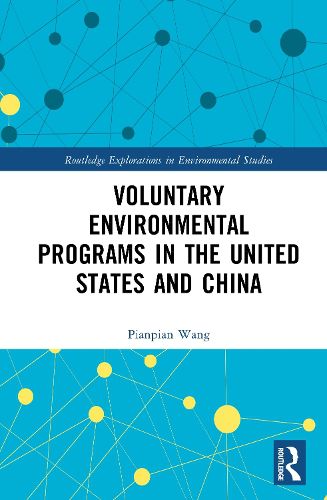Readings Newsletter
Become a Readings Member to make your shopping experience even easier.
Sign in or sign up for free!
You’re not far away from qualifying for FREE standard shipping within Australia
You’ve qualified for FREE standard shipping within Australia
The cart is loading…






This book explores the effectiveness of voluntary environmental programs (VEPs): initiatives designed and managed by social actors to motivate participants to achieve environmental goals beyond legal requirements.
Contrasting the approaches taken in the United States and China, Pianpian Wang explores VEPs and their role in environmental sustainability, addressing gaps in existing research that primarily focus on government-led initiatives. Wang delves into the motivations behind these voluntary commitments and highlights the role of various social actors, including businesses, civil society organizations (CSOs), and government agencies. By examining the interactions between program organizers, participants, and supervisors under existing legal requirements, the research offers insights into effective environmental governance strategies and provides a broader perspective on how different societal settings influence the success of these programs and inform future legislations.
Voluntary Environmental Programs in the United States and China offers valuable insights for policymakers, businesses, and researchers interested in environmental management and sustainability.
$9.00 standard shipping within Australia
FREE standard shipping within Australia for orders over $100.00
Express & International shipping calculated at checkout
This book explores the effectiveness of voluntary environmental programs (VEPs): initiatives designed and managed by social actors to motivate participants to achieve environmental goals beyond legal requirements.
Contrasting the approaches taken in the United States and China, Pianpian Wang explores VEPs and their role in environmental sustainability, addressing gaps in existing research that primarily focus on government-led initiatives. Wang delves into the motivations behind these voluntary commitments and highlights the role of various social actors, including businesses, civil society organizations (CSOs), and government agencies. By examining the interactions between program organizers, participants, and supervisors under existing legal requirements, the research offers insights into effective environmental governance strategies and provides a broader perspective on how different societal settings influence the success of these programs and inform future legislations.
Voluntary Environmental Programs in the United States and China offers valuable insights for policymakers, businesses, and researchers interested in environmental management and sustainability.